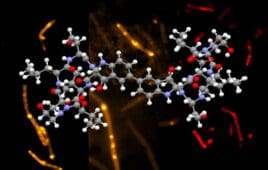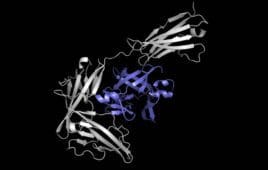Engineers at MIT designed a new way to trigger cells that could lead to targeted therapies for cancer and other diseases. Using an RNA sensor for the trigger, the researchers ensure that synthetic genes activate only in specific cells. They demonstrated that the sensor could accurately identify cells expressing a mutated version of the p53…
This T-cell vaccine could be the future of COVID-19 protection
The current mRNA vaccines from Moderna (Nasdaq:MRNA) and Pfizer (NYSE:PFE)/BioNTech (Nasdaq:BNTX) stimulate the production of neutralizing antibodies that bind to the spike protein of SARS-CoV-2. But there is a novel mRNA vaccine that activates T cells to attack cells infected with the virus. Developed by researchers at MIT and other institutions, the new vaccine could…
MIT researchers come up with new strategy to create a potential antibiotic
Researchers at MIT are touting a novel method to synthesize a natural compound that has shown potential as an antibiotic. The chemists produced himastatin using the synthesis method and also managed to generate variants of the molecule, some of which showed antimicrobial activity, according to a news story from the university’s website. The compound appears…
New AI out of MIT predicts how proteins will attach
MIT researchers are touting a machine learning model that can predict the complex that will form when proteins bind together. The technique represents an improvement on speed by somewhere between 80 and 500 times faster than state-of-the-art software methods and often predicts protein structures that are closer to actual structures that have been observed experimentally…




